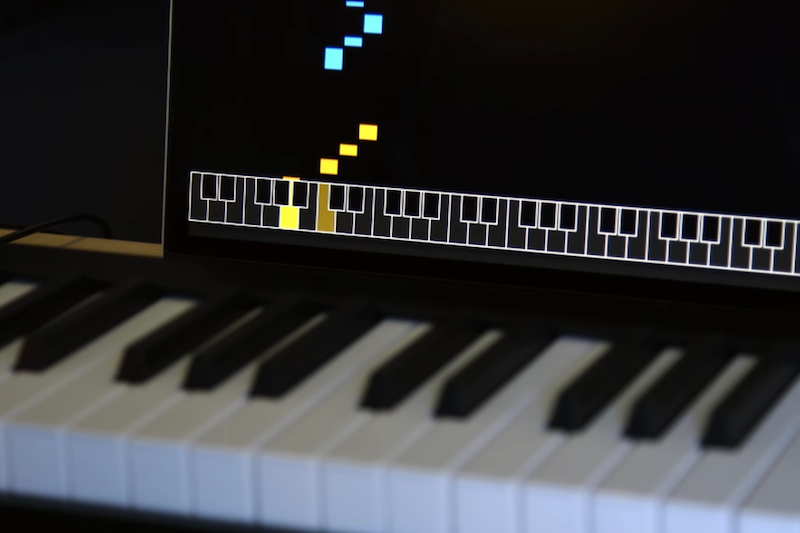Google’s new musical experiment with artificial intelligence means you’ll never have to play alone again.
Google has long tried to create artificial intelligence capable of producing art, and it has now succeeded in teaching it to play the piano. A new experiment from the technology giant allows keyboard whizzes and the musically challenged alike to play duets with a piano-playing AI. The project, dubbed AI Duet, uses neural network technology to respond to notes played on a computer keyboard.
 Google’s new programme AI Duet
Google’s new programme AI Duet
“You don’t even have to know how to play piano – it’s fun to just press some keys and listen to what comes back,”, Google employee Alexander Chen wrote in a blog post introducing the AI. “We hope it inspires you – whether you’re a developer or musician, or just curious – to imagine how technology can help creative ideas come to life”.
What makes the project worth noting – and distinguishes it from traditional piano-playing computer programs – is how it actually harnesses neural networks to make music. The AI wasn’t programmed by its creators to display specific responses. Rather, it was exposed to countless melodies so it could learn the relationships between notes and timing. This allowed the AI to build its own music maps based on what it has been listening to.
These maps are then saved in the AI’s neural networks. As users play notes on the keyboard, it compares what is being played with what it’s picked up, looking for melodic and rhythmic patterns it can identify. Because AI Duet understands musical concepts like timing and staying in key, it’s able to organically respond with the best match in real time.
“We played the computers tons of examples of melodies. Over time, it learns these fuzzy relationships between tones and timings, and built its own map based on the examples it’s given”, creator Yotam Mann said in a video.
“So in this experiment you play a few notes, they go to the neural net, which basically decides based on those notes and all the examples it’s been given some possible responses. It picks up on stuff like key and rhythm that you’re implying, even though I never explicitly programmed the concepts of key and rhythm”.











Comments
Log in to join the conversation.